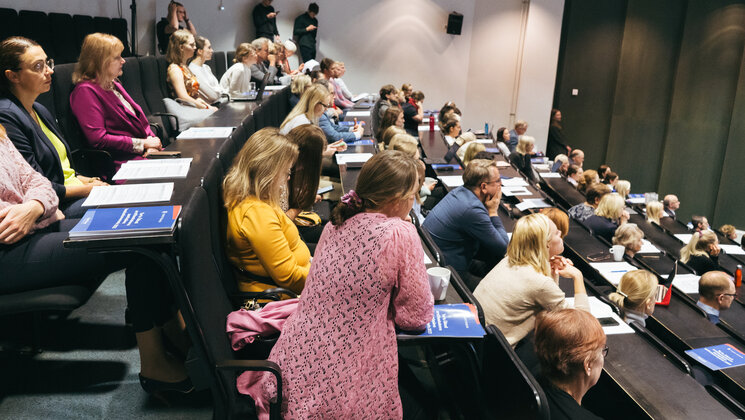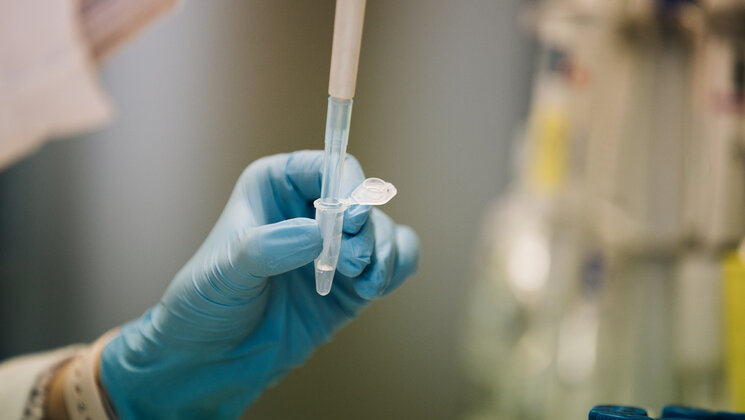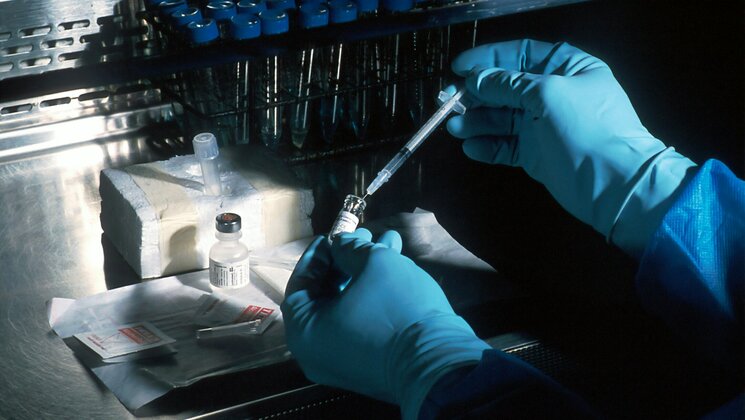-
Faculty of Arts and HumanitiesDean's Office, Faculty of Arts and HumanitiesJakobi 2, r 116-121 51005 Tartu linn, Tartu linn, Tartumaa EST0Institute of History and ArchaeologyJakobi 2 51005 Tartu linn, Tartu linn, Tartumaa EST0Institute of Estonian and General LinguisticsJakobi 2, IV korrus 51005 Tartu linn, Tartu linn, Tartumaa ESTInstitute of Philosophy and SemioticsJakobi 2, III korrus, ruumid 302-337 51005 Tartu linn, Tartu linn, Tartumaa EST0Institute of Cultural ResearchÜlikooli 16 51003 Tartu linn, Tartu linn, Tartumaa EST0Institute of Foreign Languages and CulturesLossi 3 51003 Tartu linn, Tartu linn, Tartumaa EST0School of Theology and Religious StudiesÜlikooli 18 50090 Tartu linn, Tartu linn, Tartumaa EST0Viljandi Culture AcademyPosti 1 71004 Viljandi linn, Viljandimaa EST0Professors emeritus, Faculty of Arts and Humanities0Associate Professors emeritus, Faculty of Arts and Humanities0Faculty of Social SciencesDean's Office, Faculty of Social SciencesLossi 36 51003 Tartu linn, Tartu linn, Tartumaa EST0Institute of EducationJakobi 5 51005 Tartu linn, Tartu linn, Tartumaa EST0Johan Skytte Institute of Political StudiesLossi 36, ruum 301 51003 Tartu linn, Tartu linn, Tartumaa EST0School of Economics and Business AdministrationNarva mnt 18 51009 Tartu linn, Tartu linn, Tartumaa EST0Institute of PsychologyNäituse 2 50409 Tartu linn, Tartu linn, Tartumaa EST0School of LawNäituse 20 - 324 50409 Tartu linn, Tartu linn, Tartumaa EST0Institute of Social StudiesLossi 36 51003 Tartu linn, Tartu linn, Tartumaa EST0Narva CollegeRaekoja plats 2 20307 Narva linn, Ida-Virumaa EST0Pärnu CollegeRingi 35 80012 Pärnu linn, Pärnu linn, Pärnumaa EST0Professors emeritus, Faculty of Social Sciences0associate Professors emeritus, Faculty of Social Sciences0Faculty of MedicineDean's Office, Faculty of MedicineRavila 19 50411 Tartu linn, Tartu linn, Tartumaa ESTInstitute of Biomedicine and Translational MedicineBiomeedikum, Ravila 19 50411 Tartu linn, Tartu linn, Tartumaa ESTInstitute of PharmacyNooruse 1 50411 Tartu linn, Tartu linn, Tartumaa ESTInstitute of DentistryL. Puusepa 1a 50406 Tartu linn, Tartu linn, Tartumaa ESTInstitute of Clinical MedicineL. Puusepa 8 50406 Tartu linn, Tartu linn, Tartumaa ESTInstitute of Family Medicine and Public HealthRavila 19 50411 Tartu linn, Tartu linn, Tartumaa ESTInstitute of Sport Sciences and PhysiotherapyUjula 4 51008 Tartu linn, Tartu linn, Tartumaa ESTprofessors emeritus, Faculty of Medicine0associate Professors emeritus, Faculty of Medicine0Faculty of Science and TechnologyDean's Office, Faculty of Science and TechnologyVanemuise 46 - 208 51003 Tartu linn, Tartu linn, Tartumaa ESTInstitute of Computer ScienceNarva mnt 18 51009 Tartu linn, Tartu linn, Tartumaa ESTInstitute of GenomicsRiia 23b/2 51010 Tartu linn, Tartu linn, Tartumaa ESTEstonian Marine Institute0Institute of PhysicsInstitute of ChemistryRavila 14a 50411 Tartu linn, Tartu linn, Tartumaa ESTInstitute of Mathematics and StatisticsNarva mnt 18 51009 Tartu linn, Tartu linn, Tartumaa EST0Institute of Molecular and Cell BiologyRiia 23, 23b - 134 51010 Tartu linn, Tartu linn, Tartumaa ESTTartu ObservatoryObservatooriumi 1 61602 Tõravere alevik, Nõo vald, Tartumaa EST0Institute of TechnologyNooruse 1 50411 Tartu linn, Tartu linn, Tartumaa ESTInstitute of Ecology and Earth SciencesJ. Liivi tn 2 50409 Tartu linn, Tartu linn, Tartumaa ESTprofessors emeritus, Faculty of Science and Technology0associate Professors emeritus, Faculty of Science and Technology0Area of Academic SecretaryHuman Resources OfficeÜlikooli 18, ruumid 302 ja 304 50090 Tartu linn, Tartu linn, Tartumaa EST0Area of Head of FinanceFinance Office0Area of Director of AdministrationInformation Technology Office0Administrative OfficeÜlikooli 17 (III korrus) 51005 Tartu linn, Tartu linn, Tartumaa EST0Estates Office0Marketing and Communication OfficeÜlikooli 18, ruumid 102, 104, 209, 210 50090 Tartu linn, Tartu linn, Tartumaa EST0Area of Vice Rector for Academic AffairsOffice of Academic AffairsUniversity of Tartu Youth AcademyUppsala 10 51003 Tartu linn, Tartu linn, Tartumaa ESTStudent Union OfficeÜlikooli 18b 51005 Tartu linn, Tartu linn, Tartumaa EST0Centre for Learning and TeachingArea of Vice Rector for ResearchUniversity of Tartu LibraryW. Struve 1 50091 Tartu linn, Tartu linn, Tartumaa ESTGrant OfficeArea of Vice Rector for DevelopmentCentre for Entrepreneurship and InnovationNarva mnt 18 51009 Tartu linn, Tartu linn, Tartumaa EST0University of Tartu Natural History Museum and Botanical GardenVanemuise 46 51003 Tartu linn, Tartu linn, Tartumaa EST0International Cooperation and Protocol Office0University of Tartu MuseumLossi 25 51003 Tartu linn, Tartu linn, Tartumaa EST0Area of RectorRector's Strategy OfficeInternal Audit Office
Reseach of the Chair of the Human Genetics
Current research is executed mostly in the direction of reproductive biomedicine:
- Placental genetics and genomics (transcriptomics, epigenetics, genome structural variants, microRNAs) in normal and adverse pregnancy outcomes
- Genetic factors implicated in pregnancy-related diseases
- Genetic factors implicated in male and female reproductive health, infertility and disorders of gonadal development (exome sequencing, genetic association studies)
- Investigations of ‘pleiotropic genes’ with a broad spectrum of phenotypic effects
- Biomarker studies with the focus on translational research
Our research is mostly targeted to the analysis of various human biological samples, including both targeted genetic studies and large-scale bioinformatic analysis of genomic data generated on the patient’s samples. If relevant, in vitro experimental research is applied for functional validation of the generated hypotheses. The chair has assembled over ~15 years a large biobank of clinical samples, collected in collaboration with our clinical partners at the Tartu University Hospital.
Our studies are executed in the synergy with a long-term collaboration with Estonian and international research network.
Daily partnership has been developed with clinical collaborators at the Andrology Centre (led by Prof. Margus Punab) and Women’s Clinic, Tartu University Hospital (partnership with Prof. Kristiina Rull and others). Women's Clinic, East Tallinn Central Hospital and Women's Clinic, West Tallinn Central Hospital.
The current main international collaboration
- partner in male reproductive genetics is a worldwide consortium GEMINI (‘Gentics in Male Infertility’, PI: Dr. Don F. Conrad).
- Prof. Tom Lenaerts, Université Libre de Bruxelles, Belgium.
Grants
- Estonian Research Council: Mono- and digenic causes of male infertility in the exome sequencing era: novel genes, digenic inheritance, pleiotropic effects and clinical implications (GMVBS21064PR, 01.01.2021−31.12.2025)
The most important publications in last five years
- Triin Kikas, Anna Maria Punab, Laura Kasak, Olev Poolamets, Vladimir Vihljajev, Kristjan Pomm, Mario Reiman, Stanislav Tjagur, Paul Korrovits, Margus Punab, Maris Laan (2023) Microdeletions and microduplications linked to severe congenital disorders in infertile men. Scientific Reports 13(1):574. doi: 10.1038/s41598-023-27750-w.
- Laura Kasak, Kristiina Lillepea, Liina Nagirnaja, Kenneth I Aston, Peter N Schlegel, João Gonçalves, Filipa Carvalho, Daniel Moreno-Mendoza, Kristian Almstrup, Michael L Eisenberg, Keith A Jarvi, Moira K O'Bryan, Alexandra M Lopes, Donald F Conrad; GEMINI Consortium; Margus Punab, Maris Laan (2022). Actionable secondary findings following exome sequencing of 836 non-obstructive azoospermia cases and their value in patient management. Hum Reprod 37(7):1652-1663. doi: 10.1093/humrep/deac100.
- Kasak, Laura; Rull, Kristiina; Yang, Tao; Roden, Dan M; Laan, Maris (2021) Recurrent Pregnancy Loss and Concealed Long-QT Syndrome. Journal of the American Heart Association 10:e021236. DOI: 10.1161/JAHA.121.021236.
- Inno, Rain; Kikas, Triin; Lillepea, Kristiina; Laan, Maris (2021). Coordinated Expressional Landscape of the Human Placental miRNome and Transcriptome. Frontiers in Cell and Developmental Biology, 9 (697947), 1−20. DOI: 10.3389/fcell.2021.697947.
- Hallast, Pille; Kibena, Laura; Punab, Margus; Arciero, Elena; Rootsi, Siiri; Grigorova, Marina; Flores, Rodrigo; Jobling, Mark A; Poolamets, Olev; Pomm, Kristjan; Korrovits, Paul; Rull, Kristiina; Xue, Yali; Tyler-Smith, Chris; Laan, Maris (2021). A common 1.6 mb Y-chromosomal inversion predisposes to subsequent deletions and severe spermatogenic failure in humans. eLife, 10, e65420. DOI: 10.7554/eLife.65420.

Call for abstracts: scientific conference celebrating the anniversary of the Faculty of Medicine

Testicular maldescent in infertile men may be a sign of a more severe genetic syndrome

